aNewDomain — U.S. President Barack Obama ran on a platform of change and we haven’t seen as much as we want, maybe. But, as he continues to remind us, his campaign slogan was, “Yes, we can.”
“How,” countered his one-time political rival and former Alaska governor Sarah Palin, “is that hopey-changey thing working for ya’?”
We all have a way of confusing hope with mere optimism.
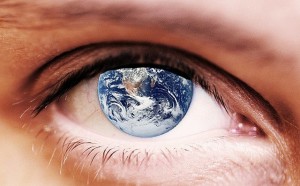 If I take this pill, I’ll be skinny. If I set up a sleep mode timer for my computer, I don’t have to think about climate change. If I trust Fox News, I don’t have to think about racism. If I vote for the right person, they will make the important political decisions for me and change my world for the better.
If I take this pill, I’ll be skinny. If I set up a sleep mode timer for my computer, I don’t have to think about climate change. If I trust Fox News, I don’t have to think about racism. If I vote for the right person, they will make the important political decisions for me and change my world for the better.
These are all just different ways of saying things will get better on their own. But that rarely happens.
When 600 people marched out of Selma towards Birmingham, they knew there would be police blockades and they understood the potential for violence. They schooled themselves in the arts of non-resistance and peaceful protest. They walked into that violence-in-potentia aware of it, conscious of it and, in some ways, needful of it. Change was not possible until people understood — thanks to video cameras and honest reporting — what the score really was.
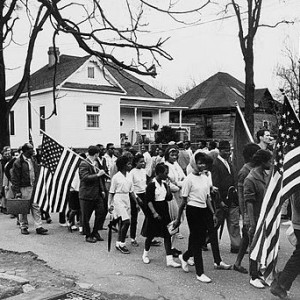 This is hope: people walking hand-in-hand towards confrontation, to enact peace, knowing they might be hurt or killed. Because the possibility of change is worth the probability of failure. And they failed, too. Protesters were gassed and beaten, driven back. Later, more than 3,000 would begin the march over again, and 25,000 would complete it.
This is hope: people walking hand-in-hand towards confrontation, to enact peace, knowing they might be hurt or killed. Because the possibility of change is worth the probability of failure. And they failed, too. Protesters were gassed and beaten, driven back. Later, more than 3,000 would begin the march over again, and 25,000 would complete it.
Hope came to fruition because of a hopeless action, a futile stab at destiny.
In his preface to A Call To Arms (1904), Lu Xun demurs on joining with some other activists in creating a journal. He imagines the Chinese people are like women and men asleep in an iron house. There is no way to escape the house and soon they will suffocate inside it.
Is there any sense in knocking against the walls of such houses and waking their occupants? Or is this cruel, given the inevitability of their fate?
In other words, shall we die peacefully and happy in our sleep, or conscious and struggling in the reality of the situation?
At the end of this preface he offers the slightest nod to hope. “True,” he writes, “in spite of my own conviction, I could not blot out hope, for hope lies in the future.” He prefers that people be awake and aware of their choices to living in a kind of passive sleeping death. Thus he takes up writing and activism.
Hope has to be more than optimism. Otherwise it risks being only an escape from reality.
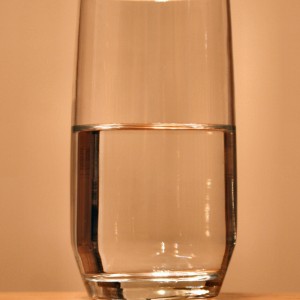 The child wishes, maybe, that she will marry someone handsome and rich one day. Or he hopes for a bicycle for Christmas. Adults are capable, though, of separating wishful thinking from truthful confrontation with the real.
The child wishes, maybe, that she will marry someone handsome and rich one day. Or he hopes for a bicycle for Christmas. Adults are capable, though, of separating wishful thinking from truthful confrontation with the real.
This is the Chinese concept of xi mian. It is a flexible word that at once describes sitting face to face, encountering one another authentically and bravely encountering the facts as they are.
Xi mian takes a good amount of courage. The world is a mess and things look hopeless. Knowing the realities of climate change, for example, or of American racism can drive anyone to despair. How can you make a difference against such gigantic odds and systemic corruption?
The truth is, one person probably can’t make that difference. The data do not support recycling as a viable green measure. Racism seems endemic to our legal system and the system protects itself against queries about that nature with secrecy and intimidation. The climate seems already to have passed a number of dangerous tipping points that will reshape our planet much more quickly than the geologic times we usually associate with such changes. We may well not survive. India and Pakistan, just for starters, have enough nuclear weapons pointed at one another to bring on a much quicker end, total and nearly instantaneous obliteration of our species.
Why bother to confront these truths, to xi mian them, when denial is so easy? Denial is, in fact, a national pass-time with us. We deny the Holocaust, the round earth, racism, vaccinations, the moon landing, the legitimacy of the President, the legitimacy of the federal government, climate change. It is so easy and convenient to deny the troubles that plague us, pretend they do not exist, and just go back to what we see as our fundamental right as Americans: the pursuit of happiness.
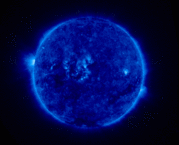 I hope we do something about climate change. But that’s just a wish. I have faith in science to fix it, to do something dramatic and remarkable. But that’s also just a wish – it’s not that I hope science can save us but that I wish it could. The difference is action.
I hope we do something about climate change. But that’s just a wish. I have faith in science to fix it, to do something dramatic and remarkable. But that’s also just a wish – it’s not that I hope science can save us but that I wish it could. The difference is action.
The difference is acceptance.
We hate sadness and despair. We pay premium prices for pills to make feelings like this go away. We punish anger. Drink and do drugs at unprecedented rates. Submerge our minds in reality television to avoid reality. Go to superhero movies and football games while the world crumbles around us.
What Lu Xun did not account for is peoples’ desire, need, determination and madness not to wake up but to stay asleep. The truth is so easy to deny and hard to accept that waking people up to what is happening is not so easy as banging on the walls of their iron houses. Even if it were, the people who profit from coal, gas and oil are mobilizing massive resources to keep these industries profitable at the expense of the rest of us.
The Koch brothers alone will spend nearly 100 million dollars in the next election cycle to keep the law against us, and to sway public opinion away from the facts of the matter. Fox News relentless denies racism and climate change, every day, and this is the mainstream media despite all protestations to the contrary. As for CNN and the other big networks, they simply ignore the problems. These things are so endemic we should be talking about them every day, sacrificing as we did in World War Two to set things to rights, sacrificing as we did when we learned CFCs were destroying the ozone layer.
There is no hope because we haven’t the courage to despair.
To despair is to xi mian racism, to xi mian climate change, to xi mian the oceanic mass extinction currently under way.
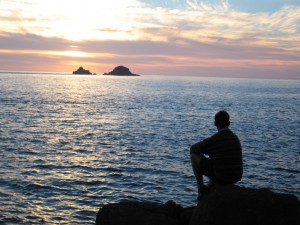 When we can do this we can begin to hope. And hope means more, must mean more, than taking our pills, wishing things were different, and voting for the right person. Hope means taking it seriously that, as the campaign slogan goes, yes, we can. Not: Yes, he can. It means standing in front of the tanks, marching in the streets, engaging violence with peace and compassion, crashing the meetings and sitting there until we are heard, going to Ferguson and getting arrested. It means being willing to be beaten and maybe killed in an act of non-violent protest because even though it’s futile, it is the right thing to do.
When we can do this we can begin to hope. And hope means more, must mean more, than taking our pills, wishing things were different, and voting for the right person. Hope means taking it seriously that, as the campaign slogan goes, yes, we can. Not: Yes, he can. It means standing in front of the tanks, marching in the streets, engaging violence with peace and compassion, crashing the meetings and sitting there until we are heard, going to Ferguson and getting arrested. It means being willing to be beaten and maybe killed in an act of non-violent protest because even though it’s futile, it is the right thing to do.
In short, we have to boldly confront the fact of our deaths and decide death cannot be avoided but only faced bravely. We can’t save our own lives – not any more – but we can give ourselves to the task of trying.
For aNewDomain, I’m Jason Dias.
Image of half full/empty glass: “Glass-of-water” by Derek Jensen (Tysto) – Own work. Licensed under Public Domain via Wikimedia Commons.
Image of Selma marchers: by Peter Pettus (Library of Congress) [Public domain], via Wikimedia Commons
Image of wiggling 3D sun: “BLUE STEREO 3D Time for Space Wiggle“. Licensed under Public Domain via Wikimedia Commons.
Image of hope in eyes: “Hope in his eyes” by Taymazvalley (h.koppdelaney) – https://www.flickr.com/photos/taymazvalley/3576351590. Licensed under CC BY 2.0 via Wikimedia Commons.
Image of morning glory clouds from a plane: by Mick Petroff (Mick Petroff) [CC BY-SA 3.0], via Wikimedia Commons

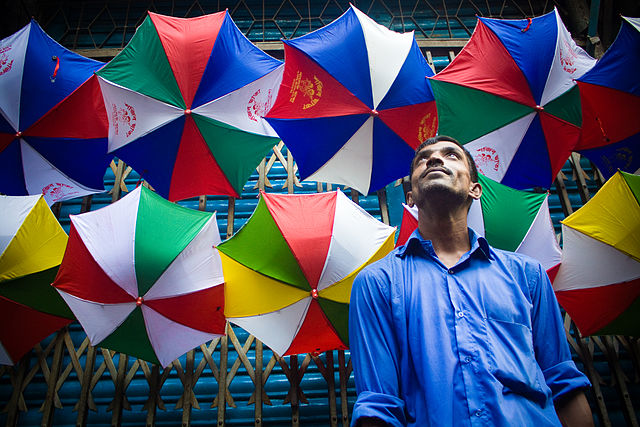












What are we supposed to “do” about something we don’t control, Jason? (I.E. “climate change”). Optimism isn’t killing us. Our lack of it is.
“Denying” climate change doesn’t exist is what doesn’t exist. Denying that human beings are in control of it does exist. And that is called “science”.
“Denying” racism doesn’t exist is what doesn’t exist. Denying that it was invented by or is now perpetuated by white people of Western European descent does. And that is called “history”.